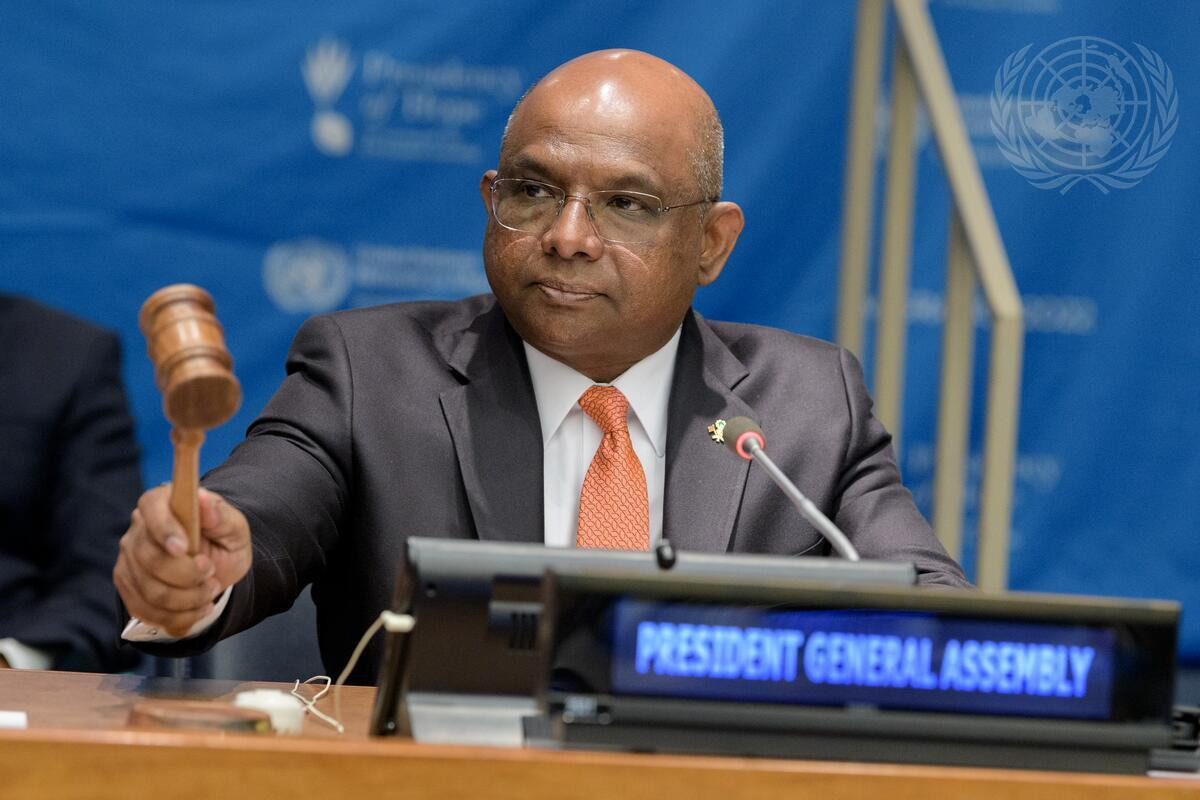Impact Group on “Ocean” is a much-needed initiative to empower women in ocean affairs: PGA
The PGA urged the globe to ensure women’s full integration in the blue economy


Abdulla Shahid, President of the 76th session of the United Nations General Assembly (UNGA)
Abdulla Shahid, President of the 76th session of the United Nations General Assembly (UNGA) has commended the Impact Group on the “Ocean” initiative by the International Gender Champions Network.
He made this remark during the launching of the Impact Group “Ocean”, noting that the much-needed initiative will assist in empowering women in ocean affairs.
Expressing his belief that working at the intersection of sustainable development goals on gender equality and climate action is of “utmost” significance, the PGA stressed that the health of the ocean is rapidly deteriorating, despite being the largest biosphere in the world, covering 70 percent of the globe’s surface and being home to over 80 percent of all life.
The PGA stressed that it is becoming warmer, higher, and more acidic, which in turn is “drastically” limiting its ability to sustain life underwater and on land, adding that it is known that current human activities apply an extreme and unsustainable pressure on the ocean, despite a vast majority of the ocean remaining undiscovered.
PGA Shahid went on to reveal that ensuring the inclusion of all voices is “essential” as the world works to “stifle” the negative impacts of the strain placed on the ocean.
The PGA noted how the voices of women are often “missing” from the roles of decision making, even if they are engaged in all aspects of the ocean from fishing to conservation.
Stressing that the added burden of care responsibilities alongside unconscious bias and involvement in low-paying jobs at sea restrict the opportunities for women, PGA Shahid urged the globe to empower women, who can protect the oceans and marine resources as they have the potential to be powerful agents of change.
As such, he noted that women have the opportunity to play a more important role in marine conservation, if they are facilitated access to capacity building, financing, and decision-making positions, adding that women have better protected marine ecosystems by prioritizing business sustainability in the case of microfinance initiatives.
The PGA, who also serves as the Maldivian Foreign Minister, stated that female scientists represent on average 38 percent of researchers in ocean science, about 10 percent higher than science overall.
He however, noted that “more” needs to be done and that it is vital to incorporate a gender-lens in policy-making, while moving forward.
The PGA urged the globe to ensure women’s full integration in the blue economy and support networks of women within the marine and aquaculture sector, as well as to improve data collection on the impact of ocean degradation on women’s health, well-being and employment opportunities.






